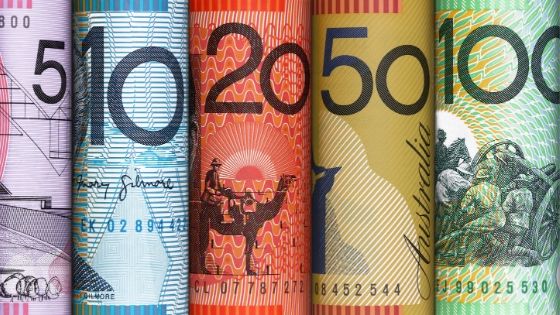NSW flood disaster recovery small business grant
Grant applications close 11:59pm 15 October 2021.
Online applications for the NSW flood disaster recovery grant are open to small businesses and not-for-profit (NFP) organisations on the Service NSW website and close on 15 October 2021. Act now if your business or NFP is eligible.
Grants of up to $50,000 are available to help pay for clean-up costs and reinstatement of operations for NSW small businesses and NFPs directly impacted by the NSW Storms and Floods from 19 February 2021 onwards (AGRN 954) or from 10 March 2021 onwards (AGRN 960) operating in a defined disaster area.
Covered costs could include, but are not limited to:
- payment for tradespeople to conduct safety inspections
- equipment and materials required for cleaning up, or hiring a cleaner to assist with post-flood clean-up
- equipment and materials essential for immediately resuming operations
- the removal and disposal of damaged goods and materials
- repairing premises and internal fittings
- leasing temporary premises or replacing lost or damaged stock if it’s essential for resuming operations
- hiring equipment and/or replacing stock needed to resume operations.
The grant is not available for expenses that are covered under the small business or not-for-profit organisation’s insurance policy, or loss of income as a result of the floods.
Available funding
The maximum grant available is $50,000.
- Funds of up to $15,000 will be provided to eligible, approved applicants, based on quotes or estimates, which need to be included in a grant submission. Evidence of payment is not required at this stage.
- Evidence including valid tax invoices will be required in relation to the first $15,000, if the applicant seeks funding from $15,000 to $50,000.
- To receive funds of between $15,000 to $50,000, applicants will need to submit evidence of payment of the relevant costs at the time of application.
If an initial grant application is for less than $50,000, a second application can be submitted if additional funds are required to complete clean-up and reinstatement activities.
Eligibility
‘Direct damage’ means a direct and material impact of flood or flood mitigation activities on business assets or equipment.
Small business owners or not-for-profit organisation applying for grants must be in a defined disaster area and:
- have suffered direct damage
- be primarily responsible for meeting the costs being claimed
- intend to re-establish the small business or NFP within the same area
- the business owner held a current ABN and was engaged in carrying on the small business at the time of flooding in the defined disaster area
- the NFP is registered with the Australian Charities and Not-for-profits Commission or an equivalent state regulatory body and held that registration at the time of the eligible disaster.
Sole traders with no employees who fulfill the above criteria are eligible to apply if it can be shown that a majority of income is derived from the small business, or that:
- immediately before the eligible disaster, a majority of your income was derived from the business, and
- the majority of that income would have come from the business again if not for the eligible disaster.
Small businesses or NFP located outside the defined disaster area may also be eligible if it operates on a part-time or regular basis within the defined disaster area, and equipment and/or a plant the small business owns was located in the defined disaster area and was damaged by the eligible disaster.
Owners operating multiple small businesses may apply for grant funding for each eligible separate business up to the maximum amount available.
Making a grant application
Service NSW outlines how to start a grant application, however if you are a client, please speak with the Allan Hall team about obtaining documents if you require assistance:
- a MyServiceNSW Account
- proof of identity
- a valid ABN/ACN number
- evidence of non-profit status (if applicable)
- insurance details (if applicable)
- business banking details for payment.
For grant applications seeking up to $50,000, applicants need:
- to nominate the grant amount being claimed
- evidence of direct damage (in the form of photos and quotes, tax invoices or receipts), and
- to provide a list of items being proposing to spend the grant on – this should include details, including cost, of items to be replaced or repaired and/or proposed clean-up activities to be undertaken.
For grants applications seeking more than $15,000, applicants need to provide invoices for completed work for the entire amount of funding for which is being applied.
Applicants unable to provide evidence of direct damage may use other appropriate evidence to prove financial impact of the damage. This may be requested as additional information and evidence to support an application.
Important
The total amount being requested from the grant should equal the amounts shown by proposed expenditure in the application.
To ensure an application is processed without delay, list each item to be purchased with funding, the known or estimated cost of each item and documentation to support each item e.g. an official quotation, invoice or receipt dated from the date of the flooding in your LGA.
For amounts between $15,000 and $50,000, evidence of payment means:
- an invoice including the name, address and ABN (if applicable) of the entity that issued the invoice and a description of each item included, clearly identifiable as being related to the approved expenditure and to damage from the eligible disaster
- a receipt including the name and address and ABN (if applicable) of the entity that issued the receipt and a description of each item to which the receipt relates
- a copy of bank transfer and/or bank statement.
Online applications for the NSW flood recovery grant are open. To commence an application, go to Service NSW or call the team at Allan Hall Business Advisors on Sydney’s Northern Beaches on 02 9981 2300 for assistance.
Primary producers may be eligible for tailored financial assistance. Please visit the Rural Assistance Authority for information on the financial assistance available to primary producers.
To review grant notes, proof of identity and auditing requirements, please visit Service NSW.
CONTACT US









